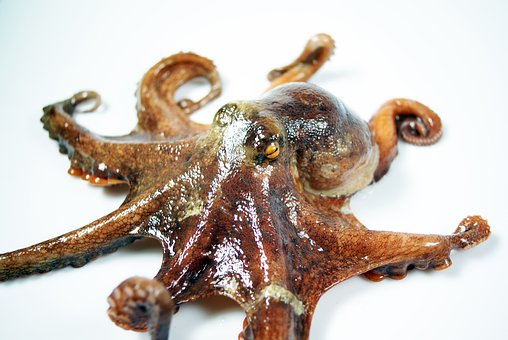Octopus, a sea creature known for its tentacles and clever camouflage abilities, is not only a popular seafood choice, but it is also becoming increasingly recognized for its potential health benefits. With its high protein content and rich nutrient profile, octopus can be a nutritious addition to a well-balanced diet. However, it is important to understand the nutritional value of octopus and how it may fit into a healthy eating plan.
First, let’s take a look at the nutritional value of octopus. According to the United States Department of Agriculture (USDA), a 3.5-ounce (100-gram) serving of octopus contains approximately:
82 calories
15.7 grams of protein
1.6 grams of fat
2.4 grams of carbohydrates
2.6 grams of fiber
1.7 milligrams of iron (9% of the daily value for adult men, 22% for adult women)
70 milligrams of magnesium (18% of the daily value for adult men, 25% for adult women)
230 milligrams of potassium (7% of the daily value for adult men, 6% for adult women)
Octopus is also a good source of other essential nutrients, including vitamin B12, selenium, and copper.
One of the most notable nutritional benefits of octopus is its high protein content. Protein is an essential nutrient that plays a crucial role in various bodily functions, including the repair and growth of tissues, the production of enzymes and hormones, and the maintenance of muscle mass. Octopus is particularly rich in a type of protein called collagen, which is important for skin health and the proper functioning of joints.
In addition to its protein content, octopus is also a good source of omega-3 fatty acids. These healthy fats have been linked to a range of potential health benefits, including reduced inflammation, improved heart health, and cognitive function. However, it is important to note that octopus is relatively low in omega-3s compared to other seafood options such as salmon or sardines.
Now, let’s address the question of whether octopus is healthy for you. As with any food, the health benefits of octopus depend on how it is prepared and consumed. When eaten in moderation as part of a well-balanced diet, octopus can be a healthy and nutritious choice. Here are a few potential health benefits of incorporating octopus into your diet:
Octopus is high in protein and can help support muscle growth and repair.
Its collagen content may be beneficial for skin and joint health.
Octopus is a good source of vitamins and minerals, including B12, selenium, and copper.
Its omega-3 content may have anti-inflammatory effects and support heart health.
However, it is important to keep in mind that octopus can be high in sodium and cholesterol, and it is recommended to consume it in moderation. Additionally, octopus can be expensive and may not be readily available in all areas.
When it comes to preparing octopus, there are a few key things to consider. First, it is important to thoroughly cook octopus to ensure that it is safe to eat. Raw octopus can harbor harmful bacteria and parasites, so it is important to cook it to a safe internal temperature of 145°F (63°C). It is also important to avoid overcooking octopus, as it can become tough and rubbery.
Octopus can be prepared in a variety of ways, including grilling, boiling, frying, and baking. It can be eaten as a standalone dish or incorporated into a variety of recipes, such as salads.

 Home
Home Health
Health Diet & Nutrition
Diet & Nutrition Living Well
Living Well More
More












